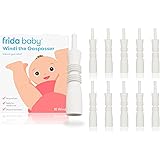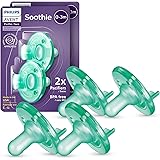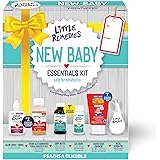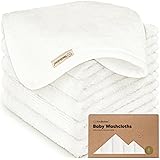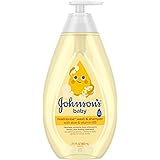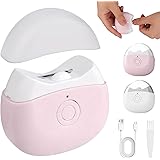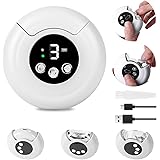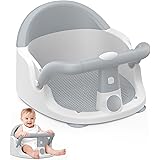A persistent cough in a child can feel like a symphony of parental worry. We all seek comfort for our little ones. It’s no wonder viral home remedies capture our attention. Think of those social media videos offering quick fixes. Dr. Amna Husain, a respected pediatrician, recently reviewed one such popular clip. It featured steaming an orange with salt for a dry cough. Her professional insight was clear and direct. This particular concoction, she explained, offers little more than salt and orange juice. It certainly won’t cure a common cold. Time, rest, and proper hydration remain key. For true electrolyte balance, she points directly to PediaLyte. This recommendation highlights a critical difference between internet wisdom and evidence-based pediatric care.
Understanding Electrolytes and Hydration
Our bodies, especially children’s, are intricate fluid systems. Electrolytes are crucial minerals, like sodium, potassium, and chloride. They carry an electric charge. These charges help regulate nerve and muscle function. They also balance our body’s fluid levels. When a child is sick, especially with vomiting or diarrhea, electrolyte balance is easily disrupted. This leads to dehydration, a serious concern in pediatric health.
Think of electrolytes as tiny construction workers. They constantly maintain the body’s internal plumbing system. Too few, or too many, and the system breaks down. A common cold, while not typically causing severe dehydration, can still benefit from good fluid intake. Preventing dehydration supports the immune system. It also aids recovery from various viral infections. Understanding proper fluid balance is essential.
The Science Behind Oral Rehydration Solutions
The orange and salt remedy might seem appealing. It leverages fruit for vitamins and salt for electrolytes. However, it lacks scientific rigor. A truly effective oral rehydration solution (ORS) is a precisely formulated blend. It contains specific ratios of sodium, potassium, chloride, and glucose. This balance is critical for optimal absorption. The glucose acts as a co-transporter for sodium. This facilitates water absorption in the small intestine. Without this specific ratio, effectiveness plummets.
Imagine trying to fix a complex engine with just two random tools. You might have a wrench and a screwdriver. But the engine needs specialized instruments. A homemade solution, like salted orange juice, is like those two random tools. It offers some components but not the full, balanced kit. Products like PediaLyte or World Health Organization (WHO) ORS formulas are engineered for purpose. They restore fluid balance efficiently. They are isotonic or mildly hypotonic solutions. This osmolarity optimizes absorption. An improperly mixed solution can actually worsen dehydration. It can even cause electrolyte imbalances, creating a new problem.
Unpacking Common Cold Management
A common cold is a viral infection. It primarily affects the nose and throat. Hundreds of different viruses can cause it. There is currently no cure for the common cold itself. Treatment focuses entirely on symptomatic relief. This means easing discomfort while the body fights off the infection. Many over-the-counter remedies exist. Yet, caution is paramount for pediatric patients. Some cold and cough medicines are not safe for young children. Their developing systems metabolize drugs differently.
Consider the common cold as a brief, unwelcome guest. You cannot evict them immediately. You can only make their stay less comfortable for you. You make sure your house is tidy and well-stocked. Similarly, managing a child’s cold involves supportive care. This includes plenty of rest and good hydration. These actions bolster the child’s natural immune response. It gives their body the best chance to recover. Avoiding unproven home remedies prevents potential harm. It also ensures focus on truly effective strategies.
Beyond Unproven Home Remedies
The internet abounds with anecdotal health advice. Some of it is harmless, some ineffective, and some potentially risky. Steaming an orange with salt, as seen in the video, falls into the ineffective category for cold relief. Other questionable remedies include excessive herbal concoctions. Always question remedies lacking scientific backing. A good rule of thumb: if it sounds too good to be true, it likely is. Prioritize safety and efficacy above viral trends. Your child’s health is too important for experimentation.
Imagine your child’s health as a sturdy fortress. We build it with strong, reliable bricks. These are evidence-based practices and medical guidance. Unproven home remedies, however well-intentioned, are like trying to build a wall with sand. They may look appealing at first glance. But they offer no structural integrity. They provide false security. They can even crumble under pressure. Consulting a healthcare professional provides the blueprint for robust health. It ensures proper care. It avoids potential pitfalls.
Effective Symptomatic Relief for Children
When dealing with a child’s dry cough or cold, focus on comfort. Hydration is always a priority. Offer small, frequent sips of water. Clear broths or diluted juices can also help. For older children, warm fluids can soothe a sore throat. Honey, for children over one year old, is an excellent natural cough suppressant. It coats the throat and calms irritation. A humidifier in the child’s room adds moisture to the air. This eases nasal congestion and dry coughs. Saline nasal drops or sprays can also clear stuffy noses. They provide significant relief, especially before feeding or sleep.
When to Seek Professional Guidance
While most common colds resolve on their own, vigilance is key. Know when to contact your pediatrician. Watch for signs of respiratory distress. This includes rapid breathing or wheezing. Persistent high fever, especially in infants, warrants medical attention. Dehydration symptoms are also concerning. These include decreased urination, lethargy, or a sunken soft spot. Any worsening of symptoms should prompt a call to your doctor. A child’s immune system is still developing. They may require professional intervention. Do not hesitate to seek help. Trust your parental instincts. Early intervention can prevent minor issues from becoming serious complications. This proactive approach ensures optimal pediatric hydration and care.


